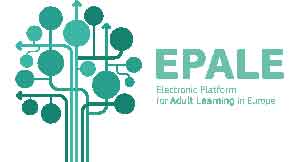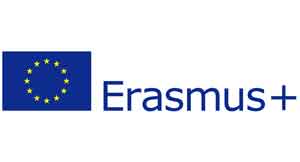Address
Milan, MI Italy View mapCategories
Teaching MethodDrama Teaching and Other Innovative Approaches to Teach A Foreign Language

Course Motivation:
This course aims to provide educators with practical skills and innovative teaching approaches to effectively teach a foreign language using drama-based techniques. By incorporating drama into language instruction, educators can create engaging and immersive learning experiences that enhance students’ language proficiency and overall communication skills.
Course Description:
The Drama Teaching and Other Innovative Approaches to Teach a Foreign Language course is a comprehensive 7-day training program designed for language educators seeking to enrich their teaching methods. Participants will explore the principles and strategies of drama-based language teaching and learn how to integrate theatrical techniques into their language lessons.
Course Methodology:
The course adopts a hands-on, experiential learning approach, combining theory and practice. Participants will engage in various activities, including interactive workshops, role-playing exercises, group discussions, and practical demonstrations. These activities will equip educators with the necessary tools to create dynamic and immersive language learning environments. Course Objectives:
-
- Understand the theoretical foundations of drama-based language teaching.
- Learn practical techniques for integrating drama into language lessons.
- Develop skills in creating and adapting drama activities for language learning.
- Explore effective strategies for assessing language proficiency through drama.
- Enhance confidence and creativity in using drama as a teaching tool.
- Foster a collaborative and communicative classroom environment.
- Explore the potential of technology in supporting drama-based language teaching.
Day-by-Day Course Outline:
Day 1:
- Introduction to drama-based language teaching: principles and benefits.
- Exploring different drama techniques and activities.
- Practical workshop: Warm-up exercises and icebreakers.
- Guest seminar: “The Role of Drama in Language Learning Research” by Dr. John Smith, University of Linguistics.
Day 2:
- Applying drama techniques to teach vocabulary and grammar.
- Integrating improvisation and role-play in language instruction.
- Practical workshop: Improvisation exercises and role-playing scenarios.
- Guest seminar: “Drama-Based Assessment in Language Education” by Dr. Emily Johnson, Language Assessment Specialist.
Day 3:
- Creating and adapting scripts for language learning purposes.
- Developing storytelling and narrative skills through drama.
- Practical workshop: Scriptwriting and storytelling activities.
- Guest seminar: “Promoting Multilingualism through Drama Education” by Dr. Maria Garcia, Multilingualism Research Center.
Day 4:
- Exploring the use of props and costumes in drama-based language teaching.
- Incorporating music, songs, and chants into language lessons.
- Practical workshop: Prop making, costume design, and musical activities.
- Guest seminar: “Technology Integration in Drama Language Teaching” by Dr. David Thompson, Technology in Education Expert.
Day 5:
- Enhancing speaking and listening skills through drama activities.
- Using forum theatre and problem-solving techniques in language instruction.
- Practical workshop: Forum theatre exercises and problem-solving scenarios.
- Guest seminar: “Inclusive Practices in Drama Education” by Dr. Sarah Wilson, Inclusive Education Specialist.
Day 6:
- Group work and collaboration in drama-based language learning.
- Adapting drama techniques for different language proficiency levels.
- Practical workshop: Group projects and language level adaptations.
- Guest seminar: “International Perspectives on Drama in Language Education” by Dr. Laura Chen, Language Education Consultant.
Day 7:
- Reflecting on the course experience and sharing best practices.
- Planning and designing drama-based language lessons.
- Final presentation of participants’ language lesson plans.
- Course evaluation and feedback session.
Future Developments and Potential Risks:
As we look to the future, integrating drama and other innovative approaches into foreign language education holds significant potential. By embracing these methods, educators can enhance students’ language acquisition, cultural understanding, and creativity. However,
if governments fail to recognize the value of such approaches and do not provide adequate support or guidelines, there is a risk of limited implementation and missed opportunities for effective language learning. It is crucial for policymakers to acknowledge the benefits of drama-based language teaching and incorporate it into educational policies and curricula.
Note: The course outline provided is a sample and can be customized based on specific requirements and participant needs.
Request all information about this course
ENROLL NOW









